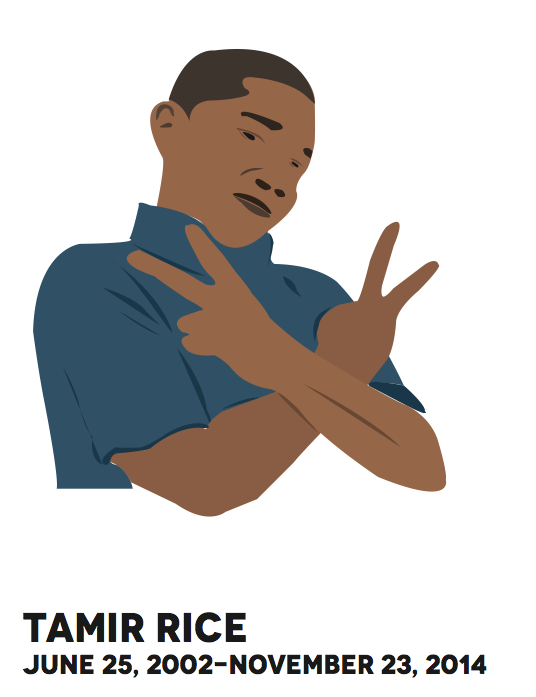Over a year after Officer Timothy Loehmann shot and killed 12-year-old Tamir Rice, a grand jury voted on Dec. 28, 2015 not to indict Loehmann for the child’s death.
Loehmann shot Rice outside of the Cudell Recreation Center in Cleveland on Nov. 22, 2014 after a 911 call reported a black male targeting people with a gun. Nearby video surveillance shows Rice playing with what was later revealed to be an airsoft gun. Rice died later the next day.
The handling of the case has been called into question, with the Rice family attorney accusing prosecutor Timothy McGinty of “abusing and manipulating the grand jury process to orchestrate a vote against indictment,” in a public statement.
“It is a much bigger issue than just the police officer involved,” said sophomore English major Taylor Johnson. “[The shooting of Rice] was clearly a mistake. It is unfortunate that a single police officer is now being blamed for the mistakes of the whole department.”
“I’m not surprised by the outcome,” said Tyrone Brown, a Student Development staff member and the coordinator for Moral Mondays at SU, the Black Lives Matter initiative on campus.
“If Tamir Rice had been a Caucasian child the circumstances would have been different, both in terms of whether or not he would have been shot, and how the case would have been handled,” Brown said.
With the United States already on edge about racially-motivated police brutality, Cleveland and other U.S. cities reacted to the decision to not indict Loehmann with protests calling for justice for Rice and other victims like Michael Brown and Eric Garner. While the protests differed from city to city, the sentiment of each movement was the same: the deaths of black people at the hands of police who are not held accountable keeps happening.
“We live in a country where the narrative in relation to black males is very specific. [Loehmann and McGinty] said that Rice looked like a grown man. We have heard that time and time again, so they can literally treat someone who is a child as an adult,” Brown said. “There is also narrative in [Cleveland] in relation to the policing of black people in terms of certain neighbors. So even before the police came to that park there was this understanding that it was a ‘dangerous’ place.”
The caller who reported Rice stated towards the end of that call that Rice was “probably a juvenile” and that the gun was “probably fake.” However, the dispatcher did not relay this information to the responding officers.
Loehmann was also deemed “unfit for duty” by his previous department, citing emotional issues. However, the Cleveland Police Department did not review his past when hiring.
Freshman political science major Sarah Eaton thinks that the department not reviewing Loehmann’s past is concerning.
“Rice’s death might have been preventable if the department had a more thorough vetting process when hiring,” Eaton said.
The problems raised regarding policing goes beyond just the Cleveland Police Department’s mistakes and can be seen in police around the country.
“There seems to be this mentality of just shoot now and ask questions later, and [Rice’s death] is just an example of that,” said Brown.
According to Eaton, racism heavily influences these immediate responses.
“These cops have to make split second decisions, and if a bias towards a race is already present in their minds that will affect how they react,”
Eaton said.
The conversation after Rice’s death is a part of the larger examination in the United States about how the criminal justice system treats black people.
Brown believes changes can start right here at Seattle University.
“There are people in relation to our [Seattle University’s] law school, criminal justice program, and ROTC who are going to be dealing with these issues. The values we have as a Jesuit university, will they be a part of the problem or solution?” Brown said. “There is an opportunity for us as an institution and our students to make a direct impact on these very issues.”
Callie may be reached at [email protected]














Bill Smith 999935
Jan 14, 2016 at 6:09 am
The GJ made the right decision. Get over it.